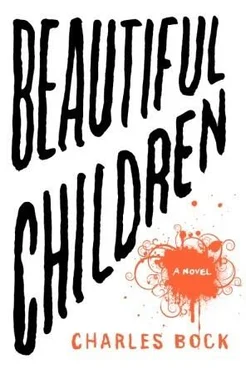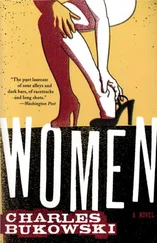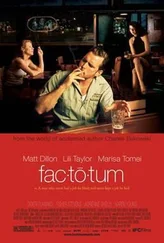Those girls, Lincoln would find himself thinking.
Where do they get all those girls?

6.1
Ghostly light filtered from the streetlamps in diffuse pockets, giving the parking lot a desolate, almost virginal glow. The Plymouth plunged into an opening in the sidewalk, its front bumper scraping against the pavement, its trunk flying open and slamming back down. A harsh squeak rose from the chassis, as if someone were torturing a cat, and the Plymouth came out of the bounce, riding the dregs of its momentum. White smoke came from beneath the hood and the junker eased its way toward the rows of unoccupied gas pumps.
Newell remained jammed against the passenger door, as far from Kenny as the vehicle's confines would allow. A sound like the blast of a twelve-gauge came from deep inside the engine. The car stopped rolling; immediately Newell pushed open the door. He stumbled out of the shaking hull and his shorts slipped and Newell jerked the waistline upward. Heat rushed to his face; he had to control himself to keep from looking backward, checking to see if Kenny had seen his underwear. He left the door open behind him and hurried away from the car.
Whatever the time, it was way, way past his curfew. Beyond this, Newell wasn't sure. He wished he were in bed, although the moment he opened the front door to his home, a thunderstorm was surely awaiting. About the last thing Newell wanted to deal with was Hurricane Lorraine. Not that he wanted to be stranded with Chester the Molester, either.
He felt a taut line aimed his way, a concentrated focus that tugged at the back of his neck, warm there, and he increased his pace — away from the car, from the watching eyes, from anything the Molester might have to say.
He rushed past the side-by-side phone booths without noticing them. Pressing his palm on the glass, Newell pushed on the door. An electronic chime accompanied his entrance and overhead fluorescence stung his eyes. He'd believed getting inside would make him feel better; but the store came off as too clean and cold for comfort. A few stragglers mulled without enthusiasm: two crones in the closest aisle, grimly sitting on stools and pumping coins into video poker terminals; a scruffy guy in a John Deere baseball cap doing something over by the hot dog rotisserie; some frat boys noisily opening cooler doors and arguing about imported beers.
Newell was approaching the register counter when his eyes caught sight of the midget — or maybe it was a hobbit, but some sort of fully formed miniature type person was sitting on the counter, his tan slacks dangling halfway to the ground, his muddy hunting boots swinging forward and back. Newell could not help but gawk. The dwarf paid no attention, he was leafing through a biker magazine, pointing out something to the counter worker, a tub of goo in an orange smock.
There was no better destination for a troubled boy than the candy aisle, no place offering a larger measure of safety: the triple deck of bins; the inviting colors and shiny wrappers; chocolate bars; chocolate bars with peanuts; white chocolate with peanut butter and real peanuts; chocolate bars with nougat caramel centers surrounded by white cream filling…
He had not made it a quarter of the way down the aisle when the entrance chimed again.
“Just an overheating engine. Should be back on the road in no time.”
Newell froze and stared at a bin of chocolate dollops, each one wrapped in shiny foil. Distaste spread through his mouth; the chiming remained in his ears, extending, repeating.
A voice from the kiosk interrupted: “In or out, buddy.”
Kenny quickly stepped into the store and the chime stilled. Looking slightly embarrassed, he slunk to the opening of the candy aisle. Now Newell's former friend shifted his gaze; the boy felt Kenny's palpable dismay, his unspoken desperation: How bad is what happened? How mad are you?
The thing about being hyperactive, doctor's orders turned candy aisles into a giant tease. You could look and you could even touch, but tasting was off-limits. You had to settle for an apple. You couldn't have soda. Even the joys of orange concentrate were off-limits. Orange concentrate isn't orange juice, Newell, and even if it was, that's still too sweet. When you'd been officially diagnosed as hyperactive you were placed in the same category as the kids with their own sets of holidays and students whose breathing problems kept them inside at recess. By all accounts, you weren't normal. You were a spaz. And the king commandment of the playground was that protesting your spazziness only proved how irredeemable a spaz you were. So on the one hand there was no arguing against your spazziness, while on the other, attempt to prove that your body was fine and dandy and just like everybody else's —if, for example, at lunch, you found someone willing to take your weekly allowance in exchange for some chocolate chip cookies — well, then, ten minutes later, turns out, you could not sit in place without thrumming your fingers. You were jumpy, you were abrasive, you did stand up in class and babble and wave your arms, reaffirming to the teacher and your fellow students and yes, even yourself— you really were a spaz. So there wasn't any way out. You were either a spaz or you were Lord God King Spaz.
Pretty much the only thing that made sense, if you could, was not to go in either direction.
Newell kept his head down and trained all his attention on the middle and bottom bins. His hands stayed in his pockets, and he pulled up his shorts, fighting against the gravitational effect of all those nickels. Kenny's eyes were still on him, Newell could feel them. But with his head down and low, the boy was able to look up, through the top of his eyes, at the elevated glass-circle thing — that reflective oval they hide the video cameras behind. In this way, Newell, without seeming like he was looking, successfully snagged a peek at the thin young man who brought up so many strange emotions inside of him: Kenny, blurred and gray and sticklike.
In the small featureless gaze from the mirrored oval ahead of him, Newell felt the looming worry, the concentrated focus — Kenny's need to be acknowledged, unavoidable, inescapable.
And implicit within that need, something else.
If a classmate wronged him, when that kid's birthday came around, Newell crossed his arms atop his desk and buried his head and refused to sing along with the song (not that he got to eat the stupid cake, but at least he showed them). In first grade, Newell had done a show-and-tell about the merits of grapes and cherries, as opposed to the impact of sugar on your teeth. His back rigid as a yardstick, he'd stood at the front of the class and delivered his report, swelling with an odd pride, because his condition made him special. It was nice to feel that way, even if he'd secretly remained envious toward the other kids for the way they got to devour candy without limits. Though Newell had acted proprietary about the taste of skim milk and walnuts, it had been just that, an act; the sugar-coated cereals still called to him, the forbidden appeal of caffeine magnified in his psyche.
Newell does not apply himself consistently appeared in the handwritten comments on his take-home report cards. Newell has trouble respecting other people's personal space, explained the apologetic and encouraging young teacher. Newell is uninterested in any conversation or subject that he is not the center of or expert at, said the jarhead disciplinarian at St. Andrews. If such a conversation occurs, he frequently makes a point of disrupting it.
Читать дальше












